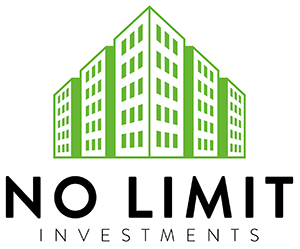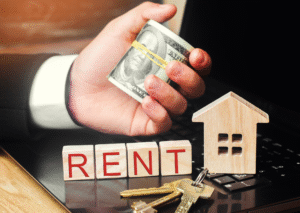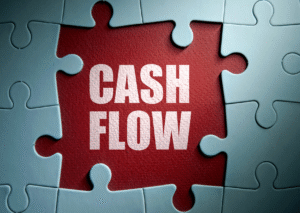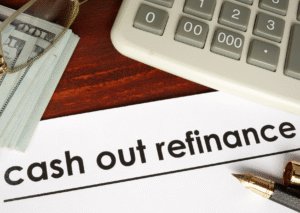What Is Cash-Out Refinancing and How Does It Work?
Cash-out refinancing is a financial tool that allows homeowners to replace their existing mortgage with a new one, typically at a higher loan amount, and receive the difference in cash. This option can provide access to the equity that has built up in a home over time. For example, if a homeowner owes $150,000 on a home valued at $250,000, they could refinance for $200,000, pay off the original loan, and receive $50,000 in cash.
The idea is simple: turn home equity into liquid funds. Many borrowers use cash-out refinancing to consolidate debt, invest in renovations, or pursue new opportunities. According to the Consumer Financial Protection Bureau (CFPB), cash-out refinancing can offer benefits but should always be weighed against potential risks such as extending loan terms or paying additional interest over time (CFPB).
Why Do Homeowners Consider Cash-Out Refinancing?
There are multiple reasons homeowners consider tapping into their home equity:
- Debt consolidation: Paying off high-interest credit cards or personal loans with a lower mortgage interest rate.
- Home improvements: Funding renovations that can increase property value.
- Education or medical expenses: Using equity to handle significant costs without turning to unsecured credit.
- Investment opportunities: Leveraging equity to expand into ventures like real estate investing.
The Federal Reserve notes that mortgage-backed debt is generally less expensive than other types of borrowing, making it attractive for those managing multiple financial obligations (Board of Governors of the Federal Reserve System).
How Does Cash-Out Refinancing Compare to Other Financing Options?
While cash-out refinancing is one path, it is not the only method for homeowners or investors looking for liquidity. Other options include personal loans, home equity loans, or lines of credit.
For real estate investors, specialized products often serve specific goals:
- Fix & Flip Loans can provide short-term capital to purchase and renovate properties.
- Buy & Hold Mortgages allow investors to maintain long-term rental income streams.
- BRRRR Financing supports the “Buy, Rehab, Rent, Refinance, Repeat” method, a proven approach to portfolio growth.
- DSCR Loans help investors qualify based on property income rather than personal income.
- New Construction Loans serve builders starting from the ground up.
Cash-out refinancing fits into this broader ecosystem of real estate financing solutions, offering homeowners a more personal path to liquidity while still being useful for investors looking to reinvest equity into new deals.
What Are the Benefits of Cash-Out Refinancing?
Cash-out refinancing can offer meaningful benefits when used strategically.
- Lower interest rates: Replacing older mortgages with new ones can result in lower rates.
- Access to cash: Homeowners can use equity without selling their property.
- Potential tax advantages: In some cases, interest on cash used for home improvements may be tax-deductible (IRS).
- Increased property value: Using funds for renovations can increase long-term home equity.
- Flexibility: Cash can be directed toward personal goals, investment opportunities, or emergencies.
When compared with high-interest personal loans or credit cards, the potential savings are significant.
What Risks Should Homeowners Consider?
Despite its advantages, cash-out refinancing carries risks:
- Extended loan terms: Refinancing could reset the mortgage clock, meaning a longer repayment timeline.
- Higher debt balance: Borrowers take on more debt than before.
- Closing costs: Refinancing comes with fees, often between 2% and 5% of the loan amount (Freddie Mac).
- Foreclosure risk: Borrowers who cannot make payments risk losing their homes.
Homeowners must carefully analyze whether they can handle the new terms before proceeding.
How Can Homeowners Evaluate if It Is the Right Move?
Making the decision to pursue cash-out refinancing requires careful evaluation. Homeowners should ask:
- What is my current equity position?
- Will refinancing lower my interest rate?
- How do closing costs compare with the cash I will receive?
- What is the purpose of accessing this cash, and will it create long-term value?
Financial experts often recommend comparing scenarios using an amortization calculator to understand the impact of different loan terms and balances.
When Is Cash-Out Refinancing Most Advantageous?
Cash-out refinancing is often most advantageous when:
- Interest rates are lower than the current mortgage.
- Home values have appreciated, increasing available equity.
- Borrowers plan to use cash productively, such as reinvesting into property or eliminating high-interest debt.
For example, a homeowner reinvesting into a second property using buy & hold strategies may find cash-out refinancing an effective bridge to portfolio expansion. Others may combine it with fix & flip loans or BRRRR financing to fund renovations or acquisitions, making equity work harder.
How Can Investors Use Cash-Out Refinancing Strategically?
Investors often view equity as fuel for growth. A cash-out refinance can unlock capital without forcing the sale of an appreciating property. This capital can then be redirected into:
- Rental property purchases through buy & hold mortgages.
- Short-term projects with fix & flip loans.
- Portfolio scaling using BRRRR financing.
- Ground-up developments supported by new construction loans.
By integrating cash-out refinancing into a broader real estate financing solution, investors can accelerate wealth-building while still leveraging the property they already own.
What Role Do Professional Lenders Play in the Process?
Professional lenders specializing in investor-focused products streamline the process of evaluating, approving, and funding cash-out refinancing. These lenders bring experience, flexible underwriting, and tailored loan programs that traditional banks may not offer.
Homeowners and investors who want access to comprehensive solutions should partner with firms offering multiple products. Having access to services such as cash-out refinancing, fix & flip loans, DSCR loans, buy & hold mortgages, and new construction loans under one roof makes it easier to align financing with long-term goals.
Why Should Homeowners Work With Experts for Cash-Out Refinancing?
Working with financing experts can help homeowners and investors:
- Navigate complex terms and compare loan options.
- Understand eligibility requirements such as credit scores, loan-to-value ratios, and property appraisals.
- Plan strategically for long-term financial health.
Choosing experienced partners ensures that cash-out refinancing is not just a short-term solution but part of a sustainable strategy for building equity and financial security.
How Can Homeowners Take the Next Step Toward Cash-Out Refinancing?

If you are ready to explore whether cash-out refinancing is right for you, the next step is to connect with a trusted financing partner.
At No Limit Investments, homeowners and investors can access a full suite of services including:
- Fix & Flip Loans
- Buy & Hold Mortgages
- BRRRR Financing
- Cash-Out Refinance
- DSCR Loans
- New Construction Loans
- Real Estate Financing Solutions
These services are designed to help you leverage your equity, expand your portfolio, and move closer to your financial goals.
Final Thoughts
Cash-out refinancing can be a powerful financial tool, but it requires thoughtful evaluation. Homeowners must weigh benefits such as liquidity and lower rates against risks like higher debt and fees. For investors, it can be a strategic pathway to expanding real estate holdings and diversifying financing strategies.
Ultimately, success depends on making informed decisions and working with professionals who understand the complexities of real estate financing. By partnering with No Limit Investments, homeowners and investors gain access to flexible solutions, expert guidance, and tailored loan products that align with their goals.
Works Cited
Board of Governors of the Federal Reserve System. Consumer Credit – G.19 Release. Federal Reserve, 2025. www.federalreserve.gov/releases/g19/current/default.htm.
Consumer Financial Protection Bureau. What is a cash-out refinance loan? CFPB, 2023. www.consumerfinance.gov/ask-cfpb/what-is-a-cash-out-refinance-loan-en-2433.
Freddie Mac. Refinancing Your Mortgage: What You Need to Know. Freddie Mac, 2024. www.freddiemac.com/refinance.
Internal Revenue Service. Topic No. 505, Interest Expense. IRS, 2024. www.irs.gov/taxtopics/tc505.
Frequently Asked Questions:
1. How much equity do I need to qualify for cash-out refinancing?
Most lenders require homeowners to maintain at least 20% equity in their property after refinancing. This means that if your home is worth $300,000, you would typically need to keep $60,000 in equity after the new loan. Loan-to-value (LTV) ratios vary by lender, but many cash-out refinancing options allow borrowing up to 80% of a home’s appraised value (CFPB).
2. Can I use cash-out refinancing for investment properties?
Yes. Investors frequently use cash-out refinancing to unlock equity from rental properties and reinvest into new opportunities. For example, equity pulled from one rental can be used to fund renovations with Fix & Flip Loans or expand a portfolio with Buy & Hold Mortgages and BRRRR Financing.
3. Are the funds from a cash-out refinance taxable?
No, the funds received from a cash-out refinance are not considered taxable income because they are borrowed money. However, how you use the funds may affect whether mortgage interest is tax-deductible. For example, if the cash is used for qualifying home improvements, the interest may be deductible (IRS).
4. What are the main risks of cash-out refinancing?
The primary risks include higher overall debt, longer repayment terms, closing costs, and the possibility of foreclosure if payments cannot be met. Homeowners should also consider whether refinancing resets their loan timeline and adds costs over time (Freddie Mac).
5. How does cash-out refinancing fit with other real estate financing strategies?
Cash-out refinancing can complement other financing options. For instance, investors may use it alongside DSCR Loans to qualify based on rental income, or combine it with New Construction Loans to fund building projects. As part of broader real estate financing solutions, cash-out refinancing allows investors and homeowners to maximize the value of their equity while keeping properties in their portfolio.







